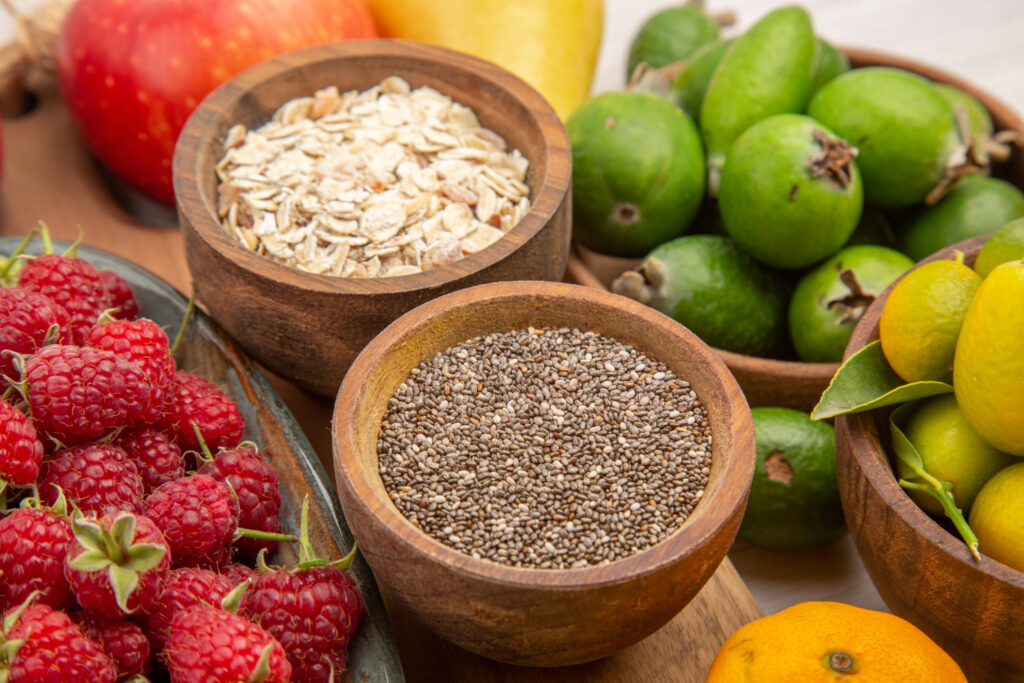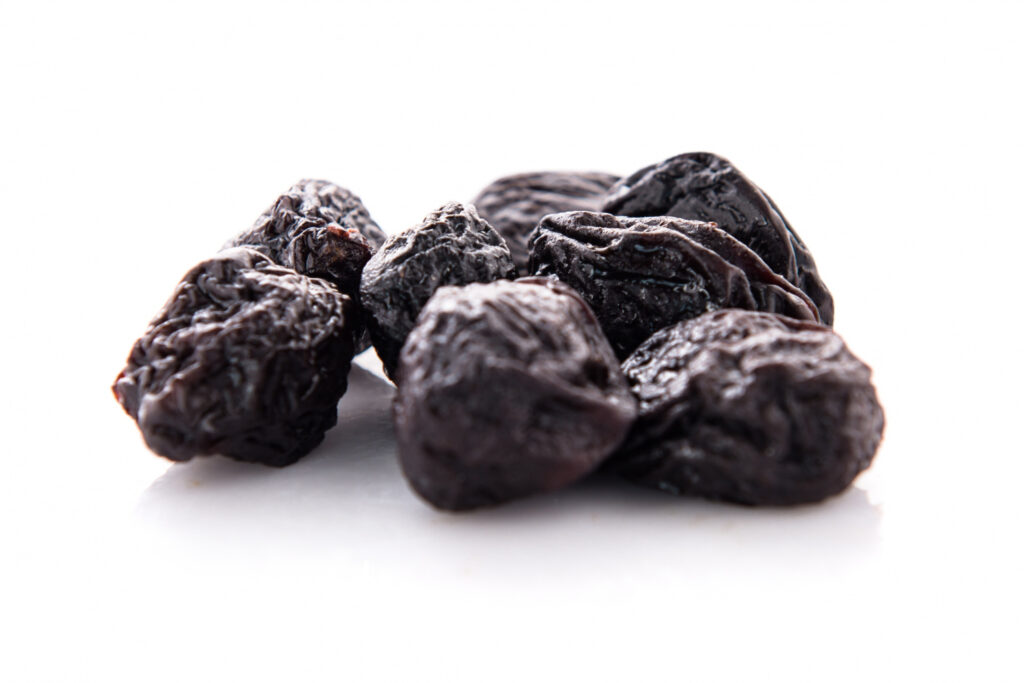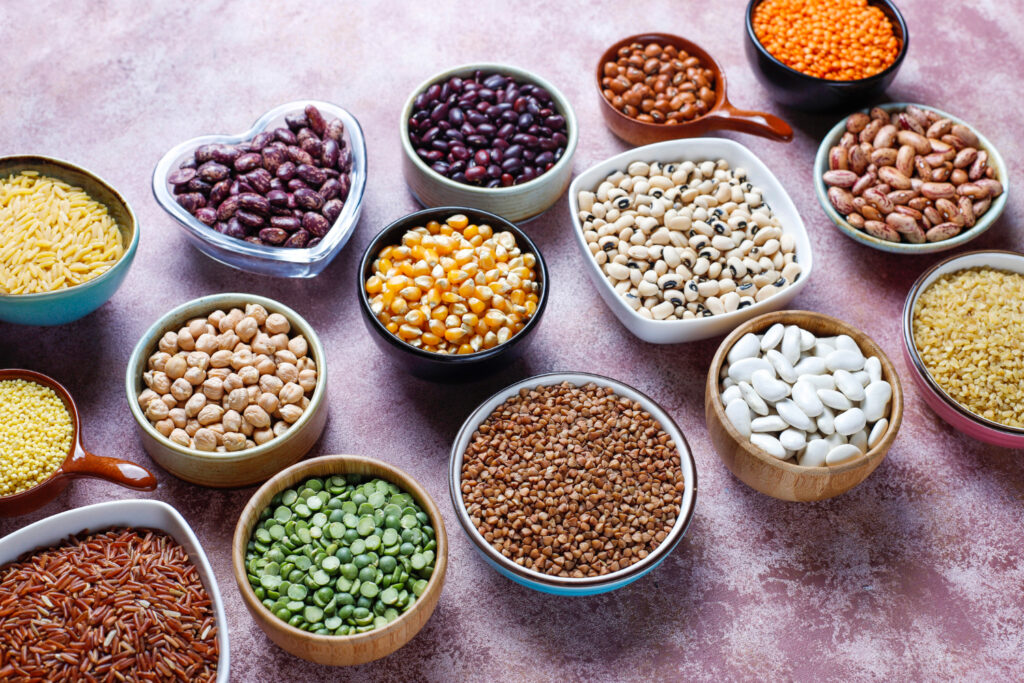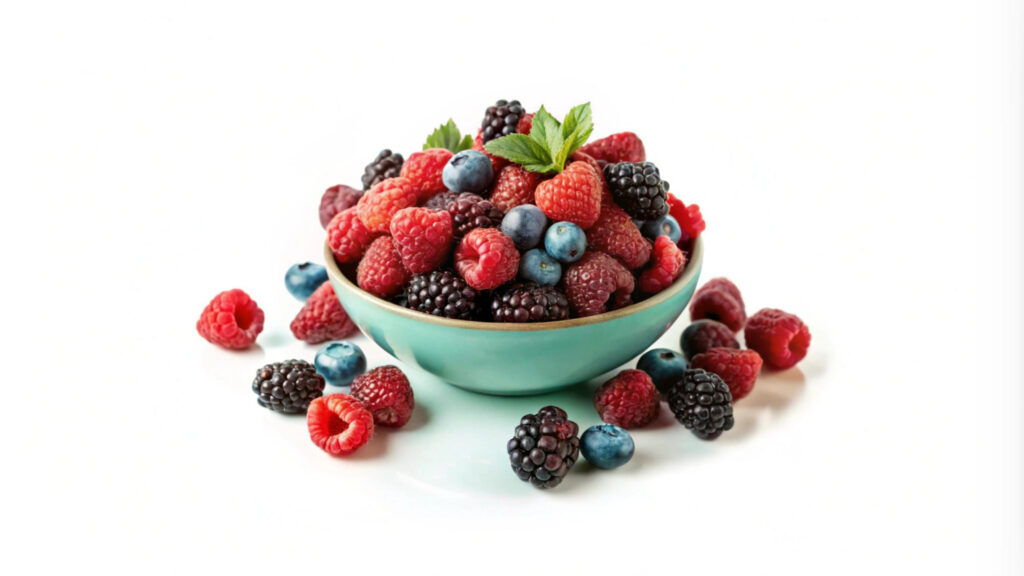There’s one thing we all hope happens first thing in the morning. It’s not coffee. It’s not checking your phone.
It’s…a good poop!
When it doesn’t happen, your whole day feels off. You’re bloated, uncomfortable, sluggish — and maybe even a little irritable (ask your family, they’ll agree).
But here’s the truth: constipation isn’t just an inconvenience. It’s your body sending you a signal — a warning that something is out of balance.

As I always say:
“If you’re not eliminating properly, you’re accumulating toxicity. And toxicity is the root of disease.”
Nowadays, our lives are filled with processed food, erratic schedules, long sitting hours, and constant stress. It’s no wonder so many people are stuck. And when bowel movements are delayed, irregular, or incomplete, you’re not just dealing with discomfort — you’re risking chronic inflammation, fatigue, and even skin issues.
Now here’s the good news:
The solution doesn’t lie in popping a pill or reaching for over-the-counter laxatives. Your body already knows how to fix this — you just have to give it the right tools.
And one of the most powerful tools? Fiber-rich food.
From chia seeds and leafy greens to apples and whole grains, nature offers a range of natural remedies for constipation that gently support your digestive system without any side effects.
Through integrative nutrition and simple changes in your daily routine to avoid constipation, you can retrain your gut to do what it was designed to do — eliminate waste, cleanse naturally, and keep yourself feeling light, clean, and energized.
So, if you’ve been struggling with irregularity, this one’s for you. Let’s explore the top 10 fiber-rich foods that double up as powerful, natural remedies for constipation — and learn how to bring rhythm and relief back into your mornings.
Chronic constipation is dangerous.
Yes, I’m saying it like it is — because someone needs to.
When you don’t eliminate waste regularly, you’re basically letting poop ferment inside your system. And we all know what happens when you leave poop lying around — whether in a bin or your body — it rots, releases gas, and invites bacterial and fungal growth.
Now imagine that happening inside your gut. As gross as it sounds, this is the raw reality inside your gut when waste sits there longer than it should.
This toxic load gets reabsorbed into your bloodstream and travels to your skin, brain, and vital organs. Over time, it can lead to:
- Nutrient deficiencies
- Hemorrhoids and anal fissures
- Inflammation
- Hormonal imbalances
- And yes — in severe cases — even cancer
But here’s the great news — your body isn’t broken. It just needs the right support.
And one of the most powerful natural remedies for constipation is also the simplest: fiber-rich food.
What is Fiber and Why Does It Matter?
Fiber is the part of plant-based food that your body can’t digest. But don’t let that fool you — just because your body can’t break it down doesn’t mean it’s useless. In fact, it’s one of the most essential nutrients for your gut.
Here’s what fiber does:
- It adds bulk to your stool and makes it easier to pass
- It absorbs water and softens hard stool (no more straining!)
- It feeds the good gut bacteria — your microbiome loves it
- It helps with cleansing, balancing blood sugar, and even lowering cholesterol
There are two types of fiber:
- Soluble fiber: Mixes with water, forming a gel-like substance that eases stool movement
- Insoluble fiber: Adds roughage, helping waste travel through your digestive tract smoothly
And guess what? The best sources of fiber aren’t supplements or powders. They’re natural, real foods — the ones nature made for you.
This is why when people ask me for food for constipation, I don’t jump to laxatives. Yes, laxatives may be necessary in certain cases where constipation is a side-effect of ongoing treatment or medications. But for many others, I ask them what they’re eating, how much water they drink, and whether their body is moving.
Remember, constipation doesn’t start in the colon — it starts with what you put on your plate and how you live your day. So if you want to fix it at the root, include fiber-rich food, follow a gentle daily routine to avoid constipation, and allow your body to heal the way it knows best.

Top 10 Fiber-Rich Foods That Are Natural Remedies for Constipation
Here are 10 of my go-to fiber-rich foods that act as gentle, effective, and natural remedies for constipation. These foods support your gut, improve motility, and help your body eliminate like it’s supposed to.
1. Chia Seeds
Rich in soluble fiber, chia seeds absorb up to 10–12 times their weight in water. When soaked, they form a gel-like coating that works like a broom through your intestines — softening stool, supporting smooth elimination, and reducing strain.
But there’s a lot of confusion around chia seeds and sabja seeds (basil seeds). People often ask — are chia and sabja the same?
No, they’re not. They look similar when soaked, but they’re entirely different seeds from different plants, and they behave differently in the body.
Here’s how to tell the difference:
- Chia seeds are from the Salvia hispanica plant, have no taste, and take longer to swell.
- Sabja seeds, from the basil plant (Ocimum basilicum), swell faster and are typically used in Ayurveda for cooling the body.
While both have health benefits, chia seeds are higher in fiber and omega-3s — making them especially powerful as a natural remedy for constipation.
How chia helps with constipation:
- The gel-forming soluble fiber lubricates the gut and softens stool
- It improves motility and nourishes your gut bacteria
- Chia helps in regulating blood sugar and reducing inflammation too — bonus!
How to use:
- Soak 1 tablespoon of chia seeds in a glass of water for four to six hours or overnight.
- Stir into oats and smoothies, or just have it plain.
- Always soak them! Dry chia can actually cause bloating if consumed without water.
For more information, click here.
Don’t expect results overnight. Gut healing is a process. Be consistent.
2. Prunes
If you grew up with your grandparents, you’ve probably heard them talk about prunes for digestion — and they were spot on. Prunes are not just an old-school remedy; they’re backed by science and have helped our clients as a natural remedy for constipation.
So what makes prunes so special?
They’re packed with:
- Soluble fiber that softens stool
- Insoluble fiber that bulks it up and moves it out
- Sorbitol, a natural sugar alcohol that draws water into the intestines, stimulating bowel movement
And they’re not just for older adults! I recommend prunes to everyone — especially those with sedentary jobs, irregular routines, or travel-induced constipation.

How to use:
- Soak 3–4 prunes in warm water before bed
- Blend into a prune paste (with a bit of cinnamon or cardamom) and have it with warm water
Disclaimer: If you’re diabetic or watching blood sugar, have them in moderation and monitor your levels. Always check with your doctor before adding anything new to your routine.
3. Leafy Greens
When we talk about food for constipation, leafy greens are non-negotiable. Whether it’s spinach, moringa, amaranth (chaulai), methi (fenugreek), or even arugula — these greens are gut heroes.
Leafy greens are packed with insoluble fiber, which acts like a broom, sweeping waste through your colon and adding bulk to your stool. But what makes them extra powerful is magnesium — a natural muscle relaxant that draws water into the intestines, softens the stool, and improves motility.
Why leafy greens help with constipation:
- Add bulk to stool for easier passage
- Relax bowel walls and stimulate peristalsis (the wave-like movement that pushes waste out)
- Support liver cleanse and reduce inflammation in the gut
This combo makes leafy greens one of the best fiber-rich foods and natural remedies for constipation, especially if you’re looking to build a daily routine to avoid constipation without depending on supplements.
How to use:
- Sauté greens lightly in ghee with cumin, ginger, and garlic
- Add to dals, soups, smoothies, or stuff them into rotis or parathas
- Use moringa powder in warm water or sprinkle it on food (start with ½ tsp daily)
Don’t overcook your greens — you’ll lose the fiber and nutrients. Light steaming or quick sautéing works best.
4. Oats
When it comes to fiber-rich food that’s gentle, nourishing, and easy to digest, oats take the crown. They’re a go-to recommendation in many of our gut protocols — especially for people who experience bloating, sluggish bowels, or irritable digestion.
The hero here is beta-glucan, a type of soluble fiber that absorbs water and forms a gel-like consistency. This softens your stool, makes it easier to pass, and feeds the good bacteria in your colon.
How oats help with constipation:
- Soften and shape the stool
- Help reduce gut inflammation
- Act as a prebiotic, feeding the gut microbiome
- Regulate blood sugar, which is often linked to sluggish digestion
How to use:
- Start with good quality, ethically sourced rolled or jumbo rolled oats — skip the instant or 2-minute versions.
- Just wash and soak your desired portion overnight in A2 milk, yogurt, or plant-based options like almond or nut milk. Even plain water works fine.
- In a separate bowl, soak nuts and seeds like almonds, chia, walnuts, or pumpkin seeds.
- By morning, simply mix everything together, add cinnamon or raw cacao nibs if you like, and enjoy your nourishing, gut-friendly bowl of overnight-soaked oats.
Oats are a gentle but powerful natural remedy for constipation and a fantastic choice for building a daily routine to avoid constipation — especially for people with sensitive guts or post-antibiotic recovery.
Would you like to try oat groats for a lip-smacking breakfast? Try this quick, easy, and healthy preparation of oats groats.
5. Flaxseeds
Flaxseeds are tiny seeds and rich in both types of fiber — soluble and insoluble — making them one of the most effective fiber-rich foods and natural remedies for constipation. They gently sweep your colon clean while also softening the stool and nourishing your gut lining.
I’ve seen flaxseeds work wonders for clients, especially those struggling with dry, hard stools or irregular bowel movements.
Besides fiber, flaxseeds are also rich in omega-3 fatty acids, which reduce gut inflammation, support hormonal balance, and help your intestines glide waste out more smoothly.
How flaxseeds help with constipation:
- Add bulk and softness to the stool
- Improve gut motility and lubrication
- Support cleansing and reduce bloating
- Feed good gut bacteria (prebiotic effect)
How to use:
- Always use freshly ground flaxseeds — whole seeds may pass through undigested
- Start with 1 to 2 tsp a day and gradually increase
- Sprinkle into overnight oats, smoothies, soups, or mix into atta while making rotis
- Drink plenty of water to avoid binding or bloating
- Choose raw over roasted flax seeds. When you have it raw, it may not taste as good as roasted. But it’s not about taste but the nutritive value. When you have it raw, you get the whole spectrum of all the nutrients intact. And when you roast them, they oxidize the good fats, due to their contact with heat and air.
Grind a small batch fresh every few days and store it in the fridge. Consistency is key — flax works best when it’s part of your daily routine.
Want to enjoy some dry nutty-flavored chutney? Relish this flaxseed chutney with curd, roti, or even rice.
6. Apples
Apples are one of the most underrated fiber-rich foods — especially because they’re affordable, accessible, and incredibly gut-friendly. The star compound here is pectin, a type of soluble fiber that forms a gel in your gut.
How apples help with constipation:
- Pectin softens and regulates stool
- Supports the growth of gut-friendly bacteria
- Adds hydration + fiber for smooth elimination
- Gently stimulates peristalsis (your colon’s wave-like motion)
How to use:
- Eat 1–2 whole apples with skin daily (avoid juicing — it removes the fiber)
- Stew apples with a little water and clove if you have a sensitive gut (especially for kids or the elderly)
- Combine with chia or flax for a constipation-fighting duo
An apple a day…might just keep constipation away.
7. Beans & Lentils
Beans and lentils are not just protein powerhouses — they’re also top-tier fiber-rich foods that support a healthy gut and regular bowel movements.
Whenever someone struggles with chronic constipation or irregular bowels, we look at fiber gaps — and legumes often fill that gap beautifully. They’re rich in both types of fiber and promote bulk and movement.
What makes beans and lentils so special is their perfect blend of fiber and resistant starch — a type of carbohydrate that resists digestion and feeds good gut bacteria. This combo keeps your colon clean, well-lubricated, and active.
How beans & lentils help with constipation:
- Add bulk and softness to the stool
- Feed your microbiome and improve motility
- Contain magnesium, zinc, and B vitamins that support gut function
- Offer plant protein that’s easy on the stomach when cooked properly
They’re also super versatile, making it easy to build a daily routine to avoid constipation with simple home-cooked meals.
How to use:
- Include cooked lentils (dal) or beans (rajma, chana, moong) in at least one meal a day
- Soak well before cooking to reduce bloating and increase digestibility
- Pair with ginger, cumin, or asafoetida (hing) to enhance gut comfort
- Add to soups, khichdi, or grain bowls

Don’t just rely on fiber powders or supplements. Simple home food like dal-chawal is often more powerful than fancy solutions — especially when made with love and mindfulness.
8. Sweet potatoes
Sweet potatoes contain a beautiful blend of soluble and insoluble fiber, along with resistant starch — which feeds good gut bacteria and enhances motility. They’re also rich in magnesium and potassium, two key minerals that help relax the bowels.
How sweet potatoes help with constipation:
- Add bulk to stool without irritating the gut
- Provide natural sugars and fiber to stimulate movement
- Nourish the gut lining and reduce inflammation
- Help hydrate and soothe an inflamed digestive tract
This makes them a perfect natural remedy for constipation, especially for children, seniors, or those recovering from illness.
How to use:
- Steam, roast, or boil — but avoid deep frying
- Add to your meals as a side, mash, or mix with dals/vegetables
- Try sweet potato mash in the evening for a light, gut-calming dinner
Sweet potatoes are a comfort fiber-rich food that your gut actually loves.
9. Berries
Berries are not just delicious — they’re gut-loving superfoods. Whether it’s blueberries, strawberries, raspberries, or blackberries, these little powerhouses are rich in soluble fiber, water content, and potent antioxidants that support your entire digestive system.
One of the biggest issues we see with constipation is dehydration, especially at the cellular level. Berries hydrate while also bulking up the stool — making them ideal for anyone struggling with irregular bowels or bloating.
How berries help with constipation:
- Rich in soluble fiber that softens stools
- Contains water and electrolytes to support hydration
- Packed with polyphenols that reduce inflammation in the gut
- Feed good gut bacteria and improve overall motility
They’re also gentle on the stomach — perfect for those with sensitive digestion or recovering from gut imbalances.
How to use:
- Eat a handful of fresh berries daily — best consumed whole, not juiced
- Add to overnight oats, smoothies, chia puddings, or as a topping on yogurt
- Blend with flaxseeds or chia for a natural constipation relief bowl

If your child struggles with constipation, berries are a great way to make fiber fun. And remember — the color on your plate is a sign of phytonutrient richness. Let your food heal you.
10. Whole Grains
In a world full of processed flours and refined carbs, going back to whole grains is one of the simplest and most effective natural remedies for constipation. Think brown rice, red rice, millet, quinoa, amaranth, buckwheat — these are ancient, unrefined grains that are rich in both insoluble and soluble fiber, slow-digesting carbs, and essential minerals.
We need to reintroduce traditional whole grains into our lifestyle — not just for fiber, but because they regulate digestion, balance energy, and keep your bowel movements consistent and clean.
Unlike refined flours (maida, white bread, polished rice), which cause sluggish digestion and blood sugar crashes, whole grains provide steady energy and fiber to support daily bowel regularity.
How whole grains help with constipation:
- Contains roughage that adds bulk and moves waste along
- Help retain water in the stool, preventing dryness and strain
- Rich in magnesium, which helps relax intestinal muscles
- Support satiety, energy, and blood sugar balance, which impact gut function
How to use:
- Replace white rice with brown or red rice, millet, or quinoa
- Rotate your grains through the week for diversity and gut strength
- Pair grains with ghee or good fat to improve digestion and nutrient absorption
- Avoid overconsumption — moderation is key, even with whole grains
Just switching from maida to ancient grains can transform your digestion. Respect your roots — your gut thrives on what your ancestors ate.
Daily Routine to Avoid Constipation
Food is powerful — but so is your rhythm.
I always say: Your lifestyle is your medicine. You can eat all the right fiber-rich foods, but if your daily habits are off — if you’re stressed out, sleep-deprived, or dehydrated — constipation will still show up.
Here’s how to bring your body back into sync and support regular, natural elimination:
- Hydrate well: Start your day with warm water or a few soaked raisins. This simple ritual signals your gut to wake up and move waste out. Throughout the day, sip on water — don’t chug — and try not to rely on too many stimulants like tea or coffee.
- Walk after meals: A 10–15 minute stroll post-lunch or dinner is one of the best natural hacks to stimulate digestion. Your gut has a rhythm — movement helps it stay in flow. If you’re sitting all day, your gut is too.
- Manage your stress: Stress isn’t just in your mind — it hits your gut too. It tightens your intestines, slows down movement, and literally ‘holds’ your poop in. Whether it’s deep breathing, prayer, music, or nature — find your outlet.
- Eat early dinners: Your digestive system needs downtime to rest, heal, and reset. Late-night eating disrupts this rhythm. Try finishing your dinner at least 2–3 hours before bed.
- Sleep on time: When you sleep well, your body cleans, your hormones reset, and your gut gets the signal to eliminate the next morning. Poor sleep = poor bowel movement.
- Eat mindfully, and chew thoroughly: Digestion begins in the mouth. If you’re swallowing half-chewed bites, multitasking, or rushing through meals, your gut has to work twice as hard. Slow down, chew well — respect the process.
Constipation is not just about the gut — it’s about how you live, eat, think, and move. Heal that, and your body will do the rest.

The Last Word
Constipation isn’t just a discomfort — it’s your body’s way of signaling that something is out of balance. The good news? You don’t need quick-fix pills or harsh laxatives. You need awareness, consistency, and a return to basics.
If you’ve been struggling with constipation, bloating, or irregularity, begin with one food or one habit. Build from there. Your gut doesn’t need drastic changes — it needs you to listen, nourish, and support it.
Frequently Asked Questions
1. Which fiber-rich foods are good for relief in constipation?
Chia seeds, prunes, oats, flaxseeds, apples, leafy greens, and sweet potatoes are powerful, natural remedies for constipation. They soften stool, support gut motility, and feed good bacteria. Eat them consistently, with enough water, and you’ll start seeing changes in how your body eliminates waste.
2. Can eating habits alone prevent chronic constipation?
Food helps, but lifestyle is key. You can eat all the right fiber, but if you’re dehydrated, stressed, sleep-deprived, or inactive, constipation will persist. It’s about how you live, eat, move, and think. Healing your gut requires a holistic, consistent approach — not just meal tweaks.
3. How much water should I drink with high-fiber foods?
Fiber needs water to work. Without it, you may feel more bloated or constipated. Aim for 8 glasses a day — sip slowly and stay hydrated throughout. Starting your day with warm water or soaked raisins can gently kickstart elimination.
4. Are there foods that worsen constipation?
Yes. Refined carbs like maida, excess dairy, deep-fried and processed foods lack fiber and slow down digestion. They cause dryness, bloating, and irregularity. Focus on natural, unprocessed, high-fiber foods and ditch anything that comes in a shiny packet with a long ingredient list.
5. What’s a simple daily routine to maintain gut health?
Start with warm water. Walk after meals. Eat fiber-rich whole foods. Chew slowly. Sleep on time. Keep stress in check. These small habits, done daily, help your gut reset, heal, and eliminate naturally — no harsh medicines needed. Lifestyle is your best medicine.
Disclaimer: This blog is intended for informational and educational purposes only and is not a substitute for professional medical advice, diagnosis, or treatment. Always consult your physician or a qualified healthcare provider before making any changes to your lifestyle or medication, especially if you have an existing medical condition.
Need help to address the root cause of your constipation and build better gut health?
We’re here to help you.
Set up a one-on-one consultation with our integrative team or explore our Gut Care Program to optimize your nutrition and lifestyle goals.
Reach out to us at 1800 102 0253 or write to us at [email protected].
Team Luke
Start Your Wellness Journey
Feeling inspired to take the next step in your wellness journey? Connect with us to explore how our tailored programs can support your health journey. Your transformation is just a conversation away.



